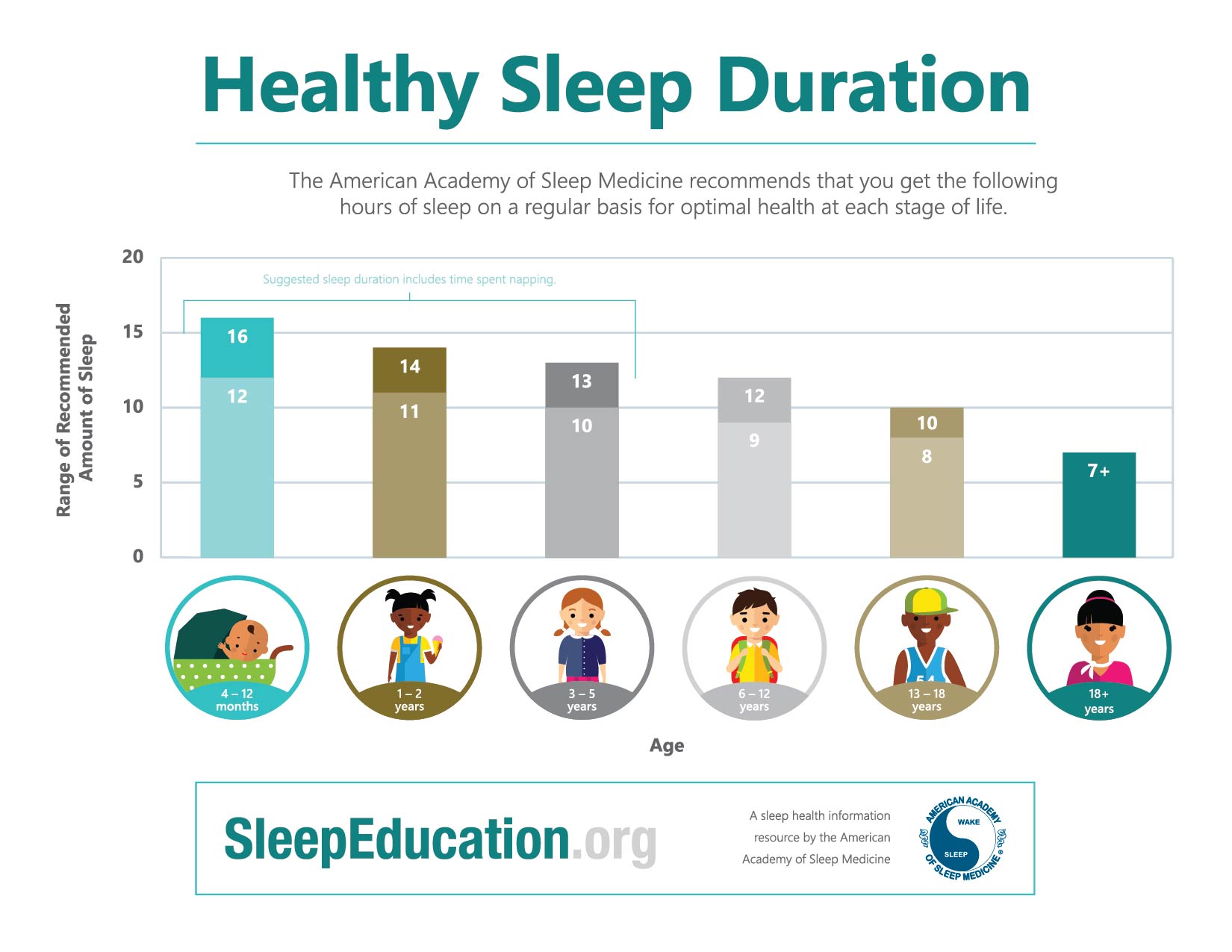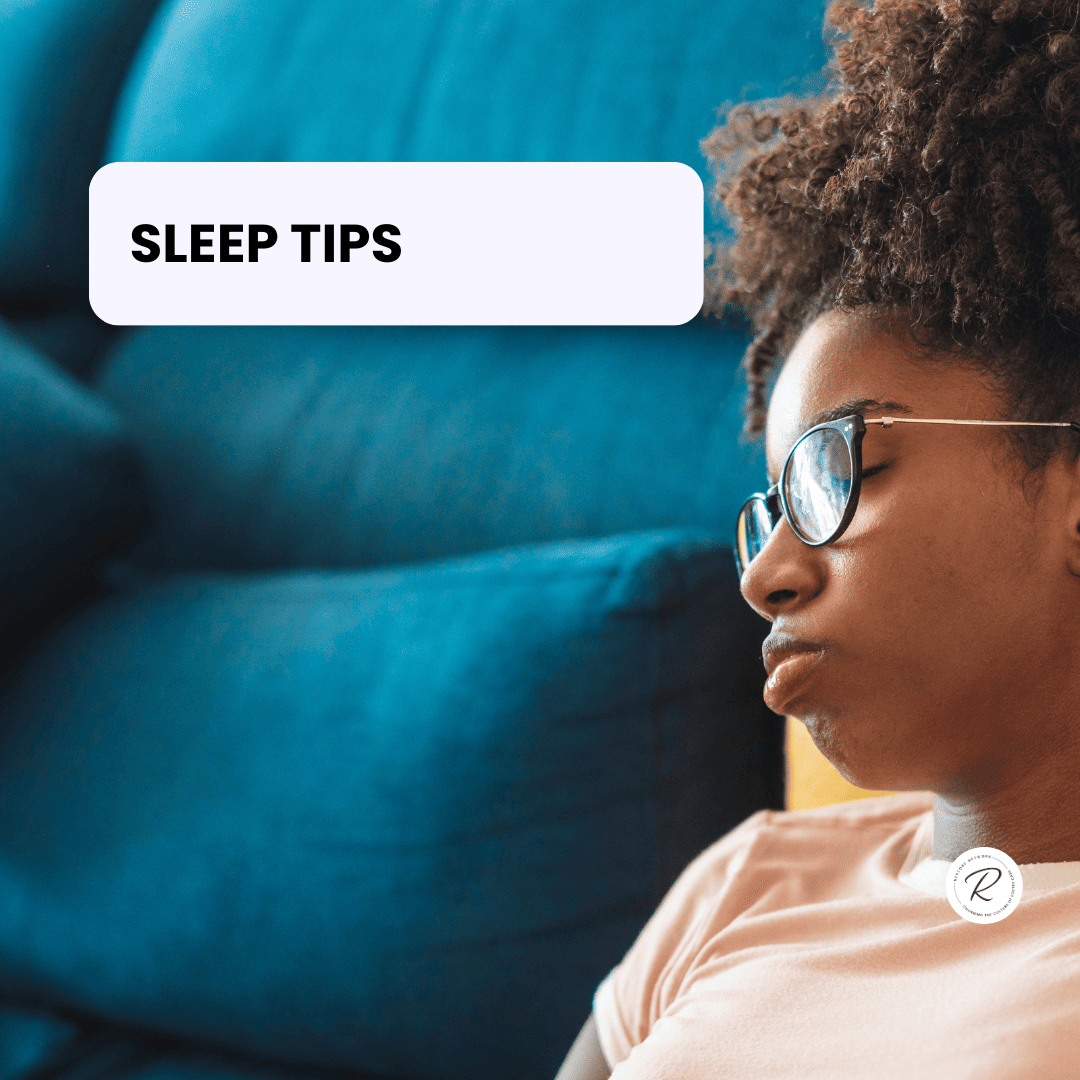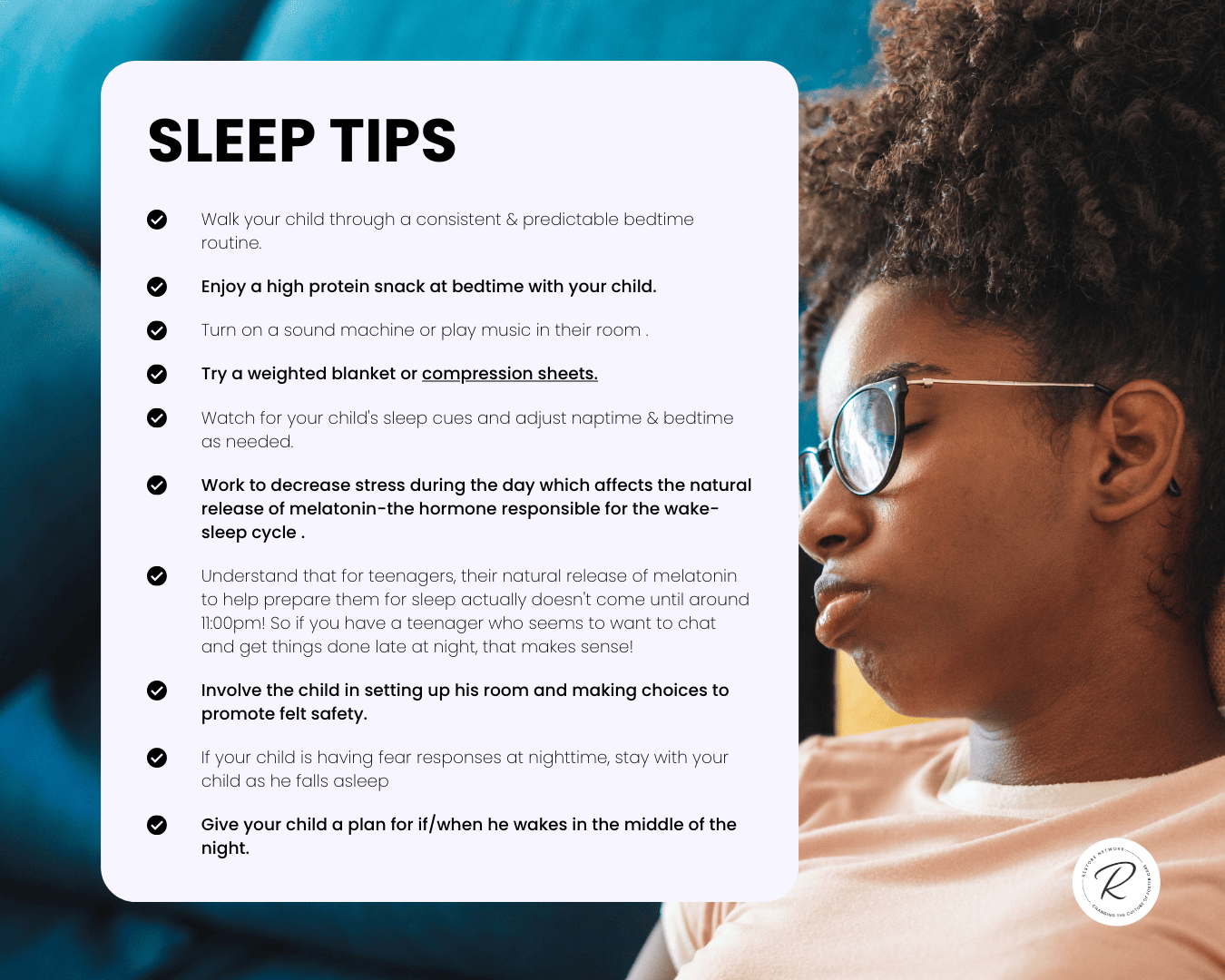by Ashley Bennett, Director of Trauma-Informed Care
A good night’s sleep can make all the difference, can’t it?
Sleep is the time of the day when our body repairs itself. After moving and thinking and working all day, it’s a time for the systems in our body to shut down and repair. There are physical benefits to sleep like supporting a healthy immune system, maintaining a healthy weight, recovering from an injury or illness, and supporting other systems within our bodies. Sleep also has a vast effect on the brain, improving concentration, memory and learning, regulating mood and behaviors, and is directly correlated with good mental health.
But for some of us, sleep can be elusive.
And for some of the children we welcome into our homes, bedtime can be scary and a reminder of past traumatic experiences. This time of the day can activate the stress response system and flood their bodies with stress hormones, which prevent the natural release of hormones associated with preparing the body for sleep. So, at 8pm you may want a child whose body begins to prepare himself for rest, but you might get a child whose body begins to prepare himself for alertness instead.
One of the ways that long-term stress and trauma can affect us is in activating hormones in ways in which our body wasn’t designed. The human body was designed to experience the release of cortisol, the primary stress hormone, in safe amounts throughout the course of a day. This cortisol hormone release is then meant to be followed by a calming hormone like serotonin or oxytocin that brings a body back to a state of calm. Experiencing this stress-relief combination then sets your body up to meet the demands of life in a relatively healthy manner.
But if your body is used to being flooded with stress hormones due to living in unsafe, unpredictable, and scary environments (like our kids), your stress levels are going to remain higher and activated for longer periods of time. As a child, if you do not have a safe and consistent caregiver meet your needs and bring you back to a state of calm, your body isn’t going to be used to moving between these states of stress and relief. You will live in a more chronic state of fear. This chronic state of fear then messes with the release of melatonin, the hormone that your body releases to help you with your sleep-wake cycle. So, for our kids, their bodies may not be operating optimally and at nighttime, their bodies might be flooding with cortisol, making them hypervigilant and awake instead of tired.
Because of this, they’re going to need our help in making times of rest a safe experience. It likely won’t be enough for us to say to our new child, “go get ready for bed,” or “stay in bed.” They’re going to need a bit more support from us. More coregulation. Even for our older youth and teens who may have the independence needs to do this all on their own but may not have the inner wiring or the experience of safety.
As we find ourselves in the middle of the summer months, it’s possible that family vacations, routine changes, and late nights playing outside have changed up your child’s sleep routines and you may be paying for it during the day with an extra sleepy kid. Or maybe it’s you who hasn’t gotten enough sleep this summer!
See below for some coregulating tips for helping your child (or you!) with sleep as well as a resource booklet that gives further support if you’re really struggling in the sleep department.

image from: sleepeducation.org
*Sleep is one of the Empowering Principles of Trust Based Relational Intervention (TBRI®). TBRI® is an attachment-based, trauma-informed intervention that is designed to meet the complex needs of vulnerable children. TBRI® uses Empowering Principles to address physical needs, Connecting Principles for attachment needs, and Correcting Principles to disarm fear-based behaviors. Learn more about TBRI® here: https://child.tcu.edu/

